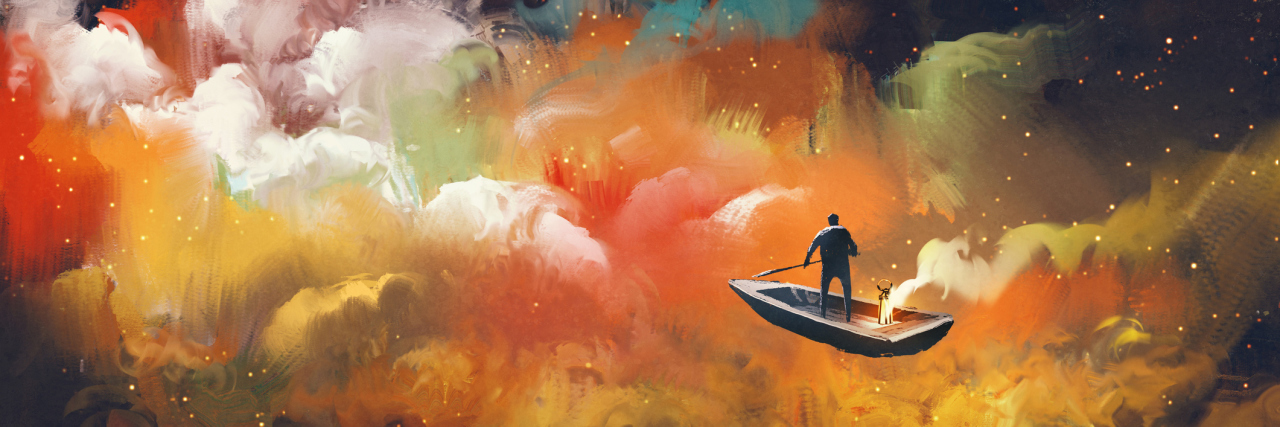Imagine, if you will, this scenario. It’s a Saturday night in Anytown, U.S.A, and your local multiplex is crowded for the opening weekend of that blockbuster you’ve waited all year for. Two people enter, yet their perspectives are radically at opposite ends. One person has a huge smile on his face that screams excitement, and he says, “I want to get a seat in the front row.” The next person slowly peers around the cinema and stops to make a keen observation, which might go something like this: “I notice that there are 10 state-of-the-art IMAX speakers set up, five on each side. If I sit in the fifth seat of the last row, I will be able to capture all the auditory pleasures of this viewing experience.” Could you guess who has Asperger’s? I know the answer. Why? Because the second one is me.
Like most topics that tend to be touchy or uncomfortable, for the longest time I would feel intense shivers go through me every time someone mentioned the “A” word. It fell into the category of things that were not to be discussed at the dinner table. It was much easier to avoid confronting the issue directly. Growing up in high school and college, I was placed into mainstream classes, but found all the ways to stand out — using vocabulary others had never heard of, or being painfully awkward, so much so that I skipped my high school prom and spent it at the movies. I can still recall where I went and what movie I saw: “The Rock,” with Nicolas Cage and Sean Connery. It was a sold-out show at the Broadway Multiplex Cinemas in Hicksville, N.Y.
It wasn’t into well into my 30s though that I started to come to grips with my Asperger’s. Whenever a teacher or a friend called me “high-functioning,” I felt less than human. I saw myself as a robot with some kind of technical deficiency that could never be corrected. However, I started to see myself differently when I realized that Asperger’s was, in many ways, a unique gift that could really have benefits for me if I was willing to accept it.
It’s never easy to embrace characteristics about yourself, and I say this because we are often our own worst enemies. No one sees our flaws the way we do. You could be out walking with a friend who says, “I feel ugly.” Naturally, you would respond by saying “Absolutely not! I think you are beautiful just the way you are.” However, once your friend returns home and looks in the mirror, the way they see themselves will differ from what you think. As I started to tap into what being on the spectrum was really all about, I began my journey of self-acceptance as an “Aspie.”
I’m also a person who stutters, and I have learned the hard way that everyone’s journey of self-acceptance is not the same. Some will accept themselves more easily, and there are others who continually fight within because they don’t want to know they are different. We all go at different speeds, and there is nothing wrong with that at all. One of the questions I am asked is “If you can accept your stutter, why can’t you accept Asperger’s? Aren’t they the same?” No, they are not the same. I used to believe people would understand if you stutter. They usually will not know why you are always socially playing catch-up.
I have done an extensive amount of motivational speaking, and I believe the first step to truly accepting your “quirks” (and we all have them!) is to look at them through a positive prism. Yes, I do struggle with dating and relating to peers, but I have gotten much better. I share that Asperger’s has given me “an enhanced attention to detail” superpower. Because of this, I am very precise with giving directions, especially when it comes to interstates and mass transit. If you want to win trivia night at your local bar, I’m the guy you want on your side because I can recall incredibly useless facts at breakneck speed. If you want a raw, unfiltered opinion, I’ll be more than happy to give it to you. Just don’t get mad at me afterward. (It was a probably not a smart idea to tell a woman that her gown makes her rear look exactly three inches too big). Being an Aspie can also serve as an educational tool about how to conduct oneself appropriately. (Note to self: it is not OK to go up to a random woman at a party and tell her she is hot. It is hilarious to find out afterward it was the former mayor of Baltimore, though!) Lastly, Asperger’s has shown me how to be more compassionate, and show others who are less fortunate than me empathy.
It bothers me when people say “Asperger’s is a problem.” I don’t see it that way. If you reframe it and say “It is a challenge,” it forces you to face it on a daily basis. There are only two choices in life: you can use every moment to complain and say that nothing will change, or you can learn about what’s going on, and apply that knowledge so you can embrace who you are. If there was a disability jackpot, I hit all sevens the first time out with stuttering and Asperger’s. Don’t be afraid to show the world who you truly are!
We want to hear your story. Become a Mighty contributor here.
Thinkstock photo by Grandfailure.

